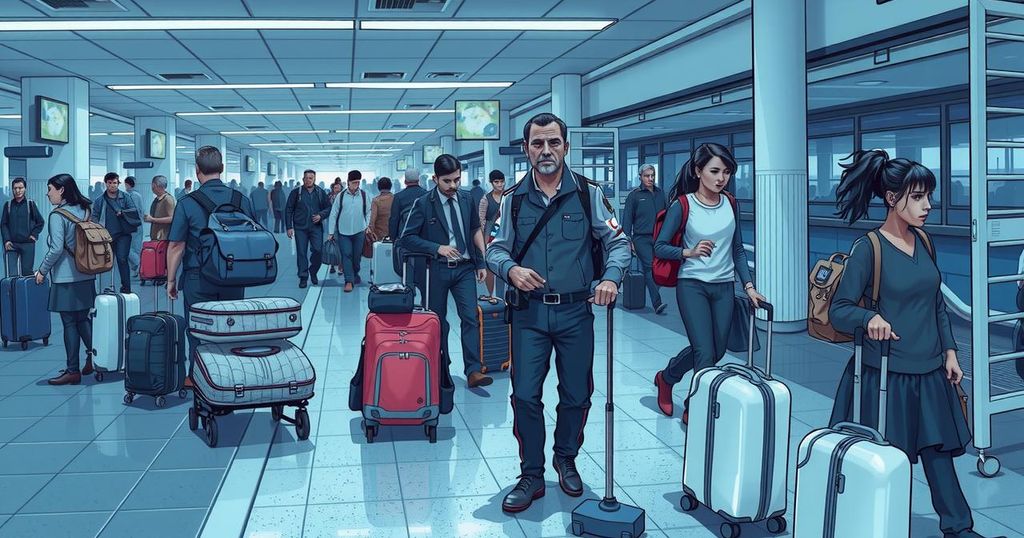Trump Travel Ban: Here’s What to Know in Miami as Restrictions Take Effect

President Trump’s travel ban takes effect today, barring entry from numerous countries, including Cuba, Venezuela, and Haiti. South Florida expects considerable impact due to its diverse population. The ban raises concerns over visa holders’ ability to enter the U.S., while local leaders strongly oppose the policy, citing its harmful community effects.
A new travel ban instituted by President Donald Trump commences today, effectively limiting or entirely barring entry from over a dozen countries due to national security apprehensions. This policy is anticipated to heavily impact South Florida, particularly considering the region’s significant population of Cubans, Venezuelans, and Haitians. Tourist, family, and business visits from these nations will largely be prohibited, although green card holders remain exempt from the restrictions.
Miami International Airport (MIA) appeared to maintain a regular flow of operations despite the implementation of the travel ban. The restrictions took effect at 12:01 a.m. today, raising concerns among travelers with existing U.S. visas about their ability to board flights and gain entry into the United States. Reports from our team indicate that there is uncertainty surrounding which travelers will ultimately be permitted entry, even with valid visas.
In the wake of the ban, community leaders in South Florida have voiced their strong disapproval, particularly regarding its effect on residents connected to Cuba, Haiti, and Venezuela. Local officials articulated their fears regarding the disruption this policy may cause, with North Miami Mayor Alex Desulme stating that this reinstatement is “a direct attack on the values of equity, compassion, and opportunity that our city and this nation were built upon.”
The travel restrictions encompass seven countries under partial measures, namely Cuba, Venezuela, Burundi, Laos, Sierra Leone, Togo, and Turkmenistan, while nationals from twelve other nations, including Haiti and Afghanistan, face a complete prohibition. Individuals from these countries can no longer enter the U.S. for tourism, business, or student visas.
A spokesperson from the Department of State clarified that current visas will not be revoked, yet the Department of Homeland Security retains discretion over who may be admitted from these affected countries. This discretionary power creates additional layers of uncertainty for travelers attempting to navigate the new landscape of U.S. entry policy.
The first day of this travel ban unfolds under a cloud of confusion and concern, as individuals from the affected nations scramble to understand their options and rights regarding entry into the country. As the situation continues to evolve, the implications for the vibrant communities within Miami-Dade and Broward counties remain a focal point of discussion among local leaders and residents alike.
The initiation of President Trump’s travel ban has sparked significant community concern, particularly in South Florida where many Cuban, Venezuelan, and Haitian residents reside. While the ban restricts entry from multiple nations, including full prohibitions from Haiti and Afghanistan, the impact on valid visa holders remains uncertain as the Department of Homeland Security decides admission cases. Local officials have strongly condemned the ban, emphasizing its detrimental effects on families and communities that contribute to the region’s diversity and economy.
Original Source: www.miamiherald.com







